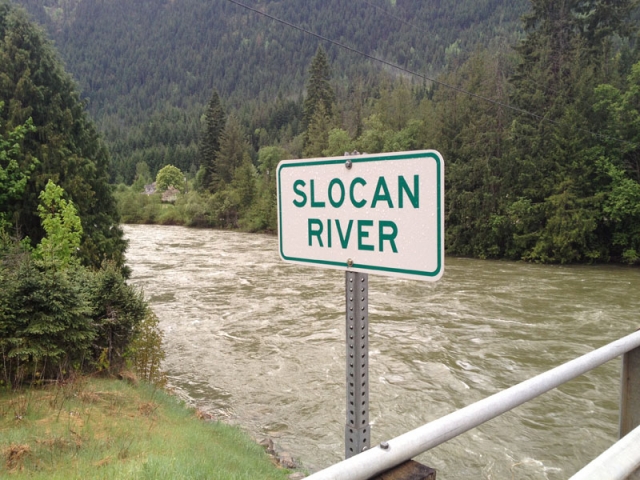RDCK applies for grant to develop Flood Risk Evaluation Policy
The RDCK wants to study how to assess the risk and dangers of flooding and other hazards to local residents, and will apply for a grant to develop a Flood Risk Evaluation Policy.
“Historic development in the RDCK has resulted in a number of communities being at risk to flooding and/or geohazards. With the impacts of climate change anticipated to increase the severity of events and vastly increase the frequency of those severe events, the residents of these communities are asking what can be done,” explains Chris Johnson, Manager of Community Sustainability, in a report to the RDCK board.
“If future development continues to occur in a manner that increases development in hazard areas with ambiguous rules, the challenge of building sustainable and resilient communities will continue to grow.”
Johnson said a Flood Risk Evaluation Policy would “remove ambiguity in the decision making for approval of development in hazard areas and provide transparency on the requirements a development in a hazard area must meet in order to be approved.
If successful and applied, the theory is that the number of homes that are exposed to higher risks will become static, and work to mitigate the impacts when a hazard occurs becomes finite/achievable.”
The evaluation policy would review national and international risk management policies, develop an ‘interim risk evaluation criteria,’ and engage with stakeholders before coming back to the board.
Directors waded carefully into the subject, as some options would see the Regional District having to take on new services – like becoming a diking authority, managing (and being responsible for) an unknown number of aging or about-to-fail water dikes in the area.
That was Director Andy Davidoff’s concern, and he said in a recent case a landowner tried to make the RDCK responsible for maintaining a long-forgotten dike on private property.
“This is a really scary area for us,” he says. “The Province has completely abrogated its responsibility to us. Diking is a bottomless pit we have to be careful about getting involved in.”
An application will go in to the Community Emergency Preparedness Fund for the project. If funding is successful, consultants will be hired to develop the new policy, which would impact the floodplain bylaw and Official Community Plans.
“An effective policy would reduce future impacts to the environment by ensuring we are adapting to it, rather than trying to adapt it to us. The public will ultimately be safer, and our first responders will be exposed to fewer situations where they are asked to be at risk,” Johnson said.

























